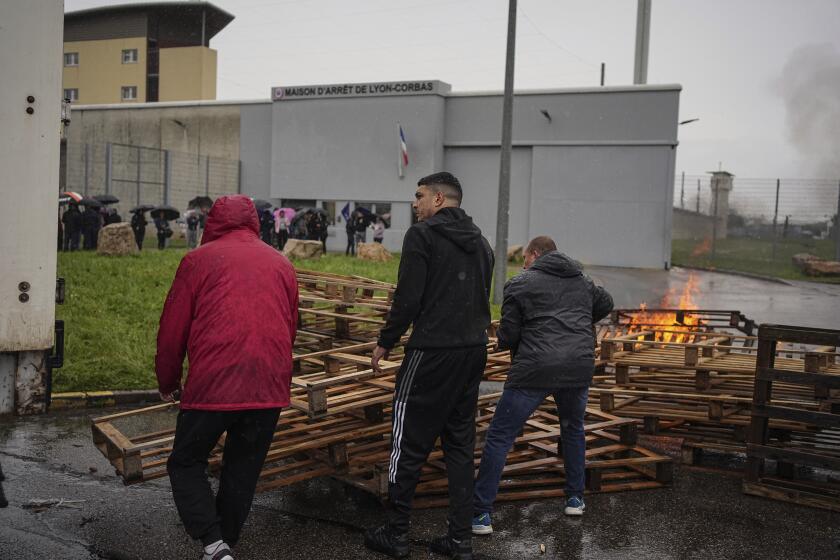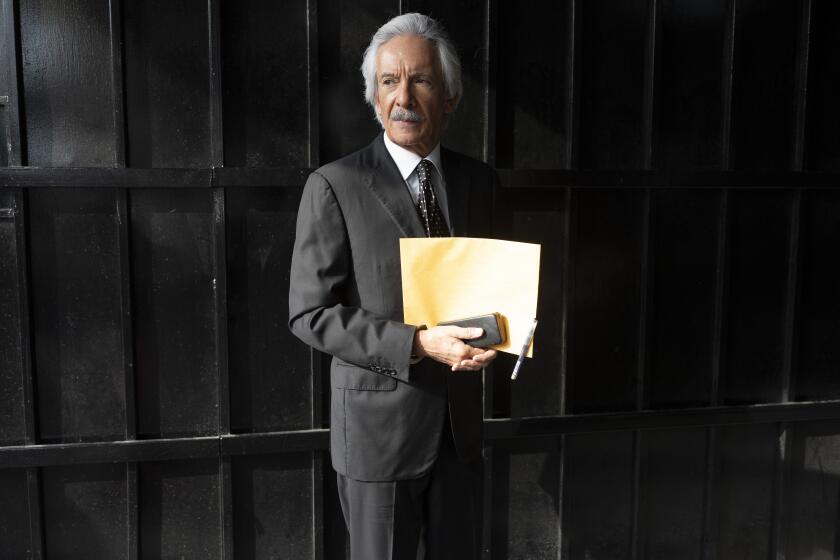In Karachi, politics means urban warfare, literally
In most places, newspaper headlines about a cease-fire between rival political parties tend to be about policy squabbles. In Karachi, such references are more often literal.
More than 40 people have died here in the last five days in so-called targeted killings, most of the victims slain because of their political affiliations. Some were executed with shocking brutality -- three of the bodies found Sunday had been decapitated.
“Think of Chicago or New York a century ago,” said Ikram Sehgal, a political analyst and longtime Karachi resident.
The violence has gotten so bad in this seething metropolis already known for gang warfare and rough ways that the government has called in paramilitary forces to restore order. This appeared to work, at least temporarily, as Monday passed with no additional casualties.
Many welcomed the calm but said they didn’t expect it to last.
“This is a feudal system with lords and peasants,” said Farhan Khan, director of a civic group that helps the disabled. “The lords have private armies, intimidate anyone who speaks out and get away with everything.”
Including murder.
“Quite simply, investigations get squashed on political grounds,” said Mohammed Hanif, a Karachi-based novelist. “It’s a cycle. One gang gets hit, it can’t go to the police for help so when it gets the opportunity, it hits back.”
Political killings nearly doubled in 2009, to 152 from 86 in 2008, according to the Interior Ministry, although some say the actual toll is higher.
Behind the killings, analysts said, is the rich allure of real estate. Rival gangs aligned with political parties are at war in part because a large number of long-term land leases are about to expire, some dating back nearly a century to the days of British rule, with ownership reverting back to the local government.
“This is all about land. It’s incredibly valuable and it’s up for grabs,” Sehgal said. “Whoever becomes the city boss will control this. Then they can route it to their brother-in-law, uncle, whomever.”
Even without sweetheart lease deals, the combination of political power and gun-toting muscle often spells heady profits.
One method reportedly used by well-connected gangs involves having two groups work in cahoots. Wielding forged ownership documents for a piece of property actually owned by a third party, the two fake claimants take their “dispute” to court. This leaves the owner excluded from litigation because by law, the fake case must be resolved first.
Going up against a mob with political clout can also weaken the owner’s will to fight. Cases drag on for years, giving the mobsters effective control, until the owner eventually sells out to the gangsters at a deep discount.
Alternately, politically backed gangs seize and sell off public parks or forcibly evict squatters -- killing them if necessary -- from land they’ve occupied for decades. Another reported method is to install squatters on land owned by someone else, making it extremely difficult to evict them or use the property. Eventually, the owners are persuaded to sell it for a relative song, at which point the squatters leave, or are forced out at the barrel of a gun, and the criminals collect their windfall profits.
“The political parties use the gangs for all sorts of purposes,” said Murtaza Razvi, editor of Dawn magazine. “It’s all about money, and right now they’re fighting over the spoils.”
With 18 million people, Karachi is not only Pakistan’s financial center but the world’s largest Muslim-majority city. There are hundreds of rival gangs and factions, analysts said, but the two main parties are the Muttahida Qaumi Movement, or MQM, which controls Karachi, and the Pakistan People’s Party, or PPP, which controls the provincial government of Sindh, of which Karachi is the capital.
To further complicate the picture, the two parties are members of the fragile national coalition government, despite their extended history of violence and mistrust. When India was split in 1947, large numbers of relatively well-educated Muslims migrated to the newly formed Pakistan.
Generally better educated, many immigrants prospered in government and private positions, but over the years they faced a backlash from local Sindhis that the PPP tapped into. As a reaction, the Muhajir Qaumi Movement was formed in 1984 to press “muhajir,” or immigrant concerns. It later changed its name to Muttahida, meaning united.
In addition to real estate, the gangs and their affiliated political parties also reportedly deal in illicit drugs and the lucrative business of supplying truckloads of water to residents at inflated prices, analysts said, capitalizing on the government’s inability to provide basic services.
“People basically lose trust in the administration and law enforcement,” Hanif said. “Karachi’s going through a convulsion period -- it’s not the first and it won’t be the last.”
More to Read
Start your day right
Sign up for Essential California for news, features and recommendations from the L.A. Times and beyond in your inbox six days a week.
You may occasionally receive promotional content from the Los Angeles Times.






